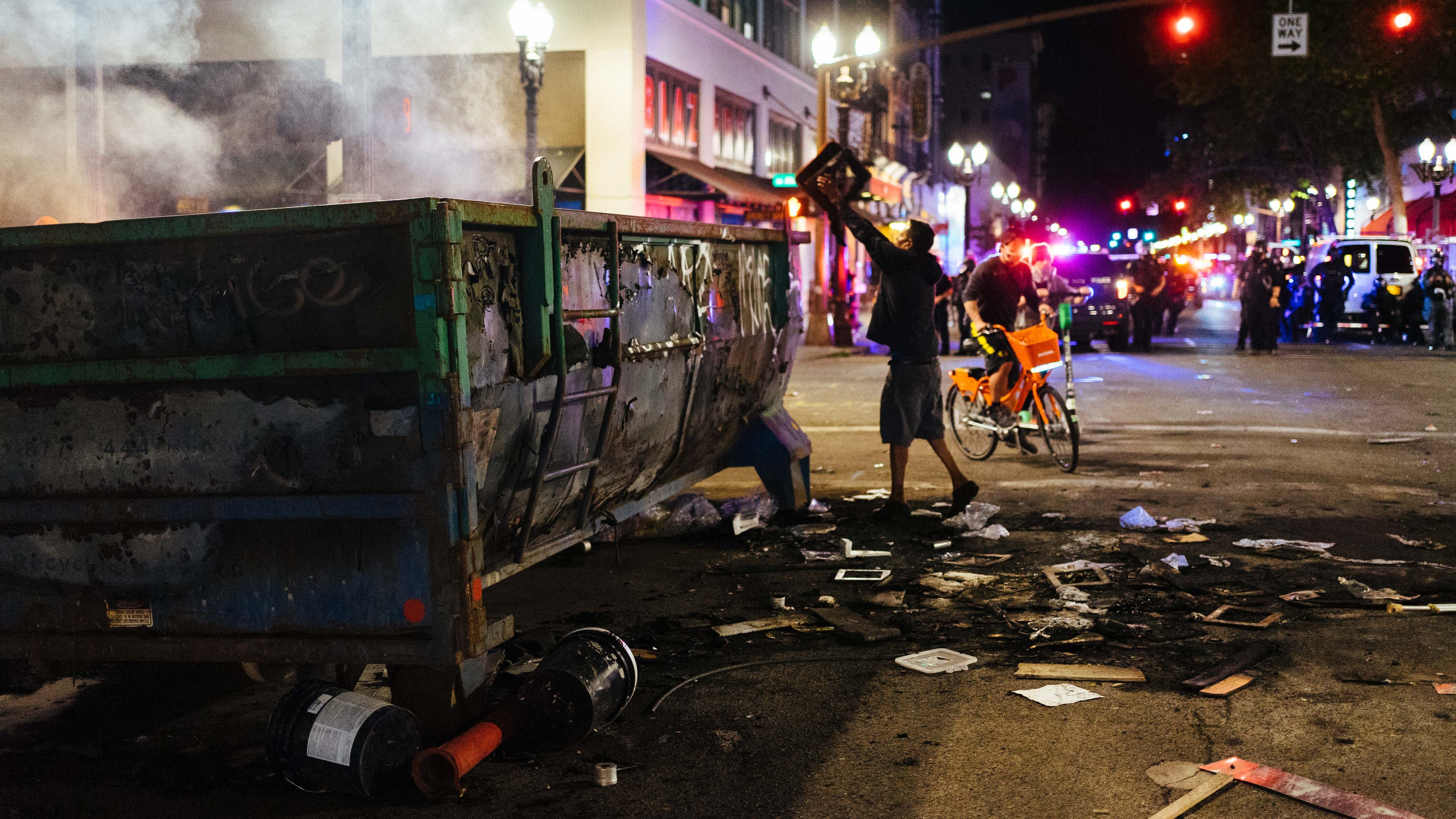Five days ahead of a presidential election that's expected to be one of the most contentious in American history, Portland-area law enforcement agencies haven't yet been told who's going to be in charge of policing anticipated election night protests.
"There's a lot of pieces to the puzzle," Portland Police Chief Chuck Lovell said during an Oct. 29 press conference. "The details of what the actual unified command piece, if that comes to fruition, haven't been ironed out yet. There are still a lot of details in the planning stages."
At the press conference, Lovell was joined by Multnomah County Sheriff Mike Reese, District Attorney Mike Schmidt and Oregon State Police Superintendent Terri Davie. They provided a few details on their plans for managing civil unrest following the Nov. 3 election.
Lovell said PPB canceled all officers' days off between Election Day and Nov. 9; Davie said her troopers will be available to Portland, and elsewhere in Oregon, if need be; and Reese said his office is setting up visible patrols at ballot drop boxes to ensure they aren't tampered with.
Beyond that, though, the public safety leaders remained vague about their election night management plans, reiterating that they're still in the preparation stage.
For example, Lovell and Davie couldn't say how many officers would be on the streets on election night. (Lovell said "a substantial amount" of police will be available, but that the specific number is "to be determined.") He also said there is potential for neighboring law enforcement agencies in Washington and Clackamas counties to provide support in some form, but that nothing is set in stone.
"The command structure is in planning mode," Davie said. "We're days before the election and we're gathering all the intel that we need." (Davie noted that a portion of OSP troopers are still federally deputized.)
That ambiguity may seem baffling with less than a week before the election in a city that, four years ago, saw marches and property destruction following the 2016 election of President Trump, and where protests against police brutality have continued regularly since late May.
But there is a likely reason for the current lack of clarity surrounding protest management. Two Portland City Hall staffers familiar with police plans said the strategy depends largely on whether Gov. Kate Brown declares a state of emergency ahead of election night, the same way she did in September before a Proud Boys rally in Northeast Portland.
City officials are still waiting to see if the governor will do that, the staffers say.
The governor's office did not respond to WW's question about whether Brown is considering invoking her emergency powers.
Under such a command structure, the Portland Police Bureau would most likely follow the lead of the sheriff's office and the Oregon State Police. This arrangement is also an avenue for Portland police to deploy tear gas—something they've been prohibited from since September, when Mayor Ted Wheeler directed the bureau not to use it for crowd control purposes.
Oregon State Police spokesman Capt. Tim Fox, who expressed dismay when Wheeler banned tear gas last month, says OSP is currently planning ahead for whichever command structure ends up taking form on election night.
"We are planning," Fox said, "whether PPB remains in charge or if the governor declares a state of emergency."
Pending an announcement by the governor, City Hall staffers say, the command structure remains in a state of limbo.
"We're prepared to operate within the rules that we're given," Lovell said. "Things could happen between now and election night."
